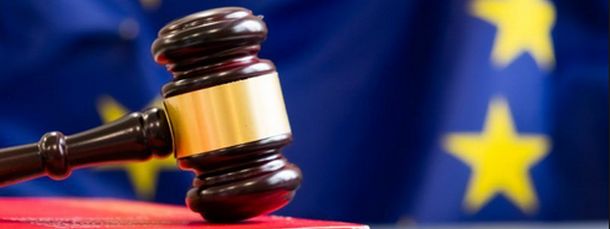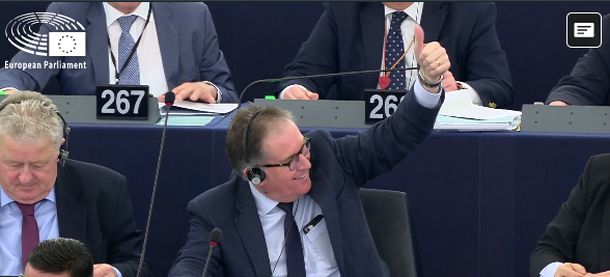Open letter
9 September 2010
To the attention of Mr. Jerzy Buzek,
President of the European Parliament
Your Excellency,
We are a group of Saharawi human rights defenders who have suffered abduction and political imprisonment as a result of our opinions and human rights activities. You may know that some of us have been honoured internationally and received awards for our work in pursuing justice within Western Sahara. We write to you about the continuing situation of serious human rights abuses inside that part of Western Sahara occupied by the Kingdom of Morocco. We have also have grave concerns about the continued taking of the natural resources of the territory.
On 8 October 2009, upon our return from a visit of a humanitarian nature to the Saharawi refugee camps South-West Algeria, we were arrested inside the Mohamed V airport in Casablanca by the Moroccan Criminal Police with the participation of other Moroccan secret and security agencies. We were submitted to interrogation for eight days and abused in many ways that cannot be detailed in this letter. Subsequently, we were brought before the Examining Judge of the Moroccan Military Court in Rabat, a step that imperilled us. The Moroccan Judge sent us to preventive imprisonment in the local prison of Sale on 15 October 2009.
Your Excellency,
On 28 January 2010, our comrade, Ms. Degja Lechgar, was conditionally released, and in a similar way three other comrades, Mr. Yahdih Terrouzi, Mr. Saleh Lebeihi and Mr. Rachid Sghair, were also released on 18 May 2010 after our shared hunger strike which lasted for 41 days. We ended the hunger strike after we had received promises from the Moroccan authorities to resolve our case. But in spite of all the reiterated calls from Moroccan and international human rights organisations and from governmental and parliamentarian institutions from many countries demanding our immediate and unconditioned release, the Moroccan government has kept the remainder of us in custody, thus demonstrating its reluctance to bring us before court or liberate us. Such continuing detention can only be considered as illegal and contrary to international law (including the Fourth Geneva Convention, its 1977 Protocols and the International Covenant on Civil and Political Rights), which guarantees the right to a fair judgment within a reasonable period of time. Now, Your Excellency, we have spent more than 11 months in prison without trial.
Your Excellency,
Our visit to the Saharawi refugee camps, which can only be framed by what international law and covenants classify as an exercise of the freedom of movement and peaceful expression, has resulted in our arrest and continuing detention on the basis of vague allegations, in a blatant attempt to deviate from its real nature. We respectfully submit this reveals the Moroccan government policy to continue to oppress and target Saharawi human rights defenders who openly express their political opinion against the tendencies of the Moroccan regime regarding the question of Western Sahara. And what makes such action by the government of Morocco indefensible is that more than 60 other Saharawi human rights defenders made the same trip to the Saharawi refugee camps on successive occasions. Surprisingly, their action did not result in the same legal procedures or questioning, though they were subjected to many kinds of harassment. As a result, we believe there are no more arguments available to the Moroccan regime in order to keep us in prison.
Your Excellency,
The illegal imprisonment to which we continue to be subjected is a very small violation compared to the nature and amount of gross violations committed in Western Sahara. Moroccan and international human rights organizations report on these abuses, but Morocco simply disregards the complaints and protests of the international community.
In this, Rabat has also shown very little respect for its geopolitical and economical partner, the European Union, which is known for its persistent advocacy for respect for international law and human rights worldwide. The advanced partnership granted to Morocco has failed to convince Rabat to terminate its oppressive policies and has not succeeded in bringing the country more in line with the European norms and high standards on human rights. Instead, the change in status is used by the Moroccan authorities as a cover for repeated and blatant human rights violations.
It is a concern that the European Union allows its image to be tainted by Morocco. Nowhere is this more obvious than in the case of the 2007 Fisheries Partnership Agreement, where the European Union has been made an accomplice to the illegal theft of the Saharawi people’s natural resources. As stipulated in the 2002 United Nations Legal Opinion on the matter, and repeated in the 2009 European Parliament’s Legal Opinion, the Saharawi resources can only be taken from the territory in accordance with the Saharawi people’s wishes and interests. Your Excellency, we never had a voice in this undertaking, and the only outcome of the fisheries agreement that our people have noticed, is that our voices are suppressed even more, as Morocco feels itself supported by the European Union in its illegal and unfounded claim over our homeland. Since the Saharawi people have not agreed to nor benefits from the agreement, as required under international law, we respectfully ask that all European fisheries in Saharawi waters be halted immediately.
We finally call on Your Excellency to call the government of Morocco to account so as to quickly bring us before court, in a fair judgment and in the presence of international observers or to release us along with all Saharawi human rights defenders and prisoners of conscience in Moroccan prisons.
Please accept, Your Excellency, the assurance of our highest consideration,
From: The three Saharawi human rights defenders, prisoners of conscience
Ali Salem Tamek, Brahim Dahan and Hamadi Naciri
Copies to:
Mr. Christopher Ross, Personal Envoy of the UN Secretary General for Western Sahara
Ms. Catherine Ashton, Baroness Ashton of Upholland, PC, High Representative for Foreign Affairs and Security Policy of the European Union
Here is the EU Council's legal advice on fishing in occupied waters
Hans Corell criticizes EU fisheries in Western Sahara
The former Legal Counsel to the UN Security Counsel, Mr. Hans Corell, comments on the EU's fisheries activities in Western Sahara.
EU Court reaffirms position on Western Sahara
Polisario has a case, but it should be pursued when the time is right, Court implies.
European Parliament disregards Court and adopts Morocco fish deal
Notwithstanding four consecutive rulings of the EU's highest Court calling such a practice illegal, the European Parliament has just now voted in favour of the EU-Morocco Fisheries Agreement that will be applied to the waters of occupied Western Sahara.


